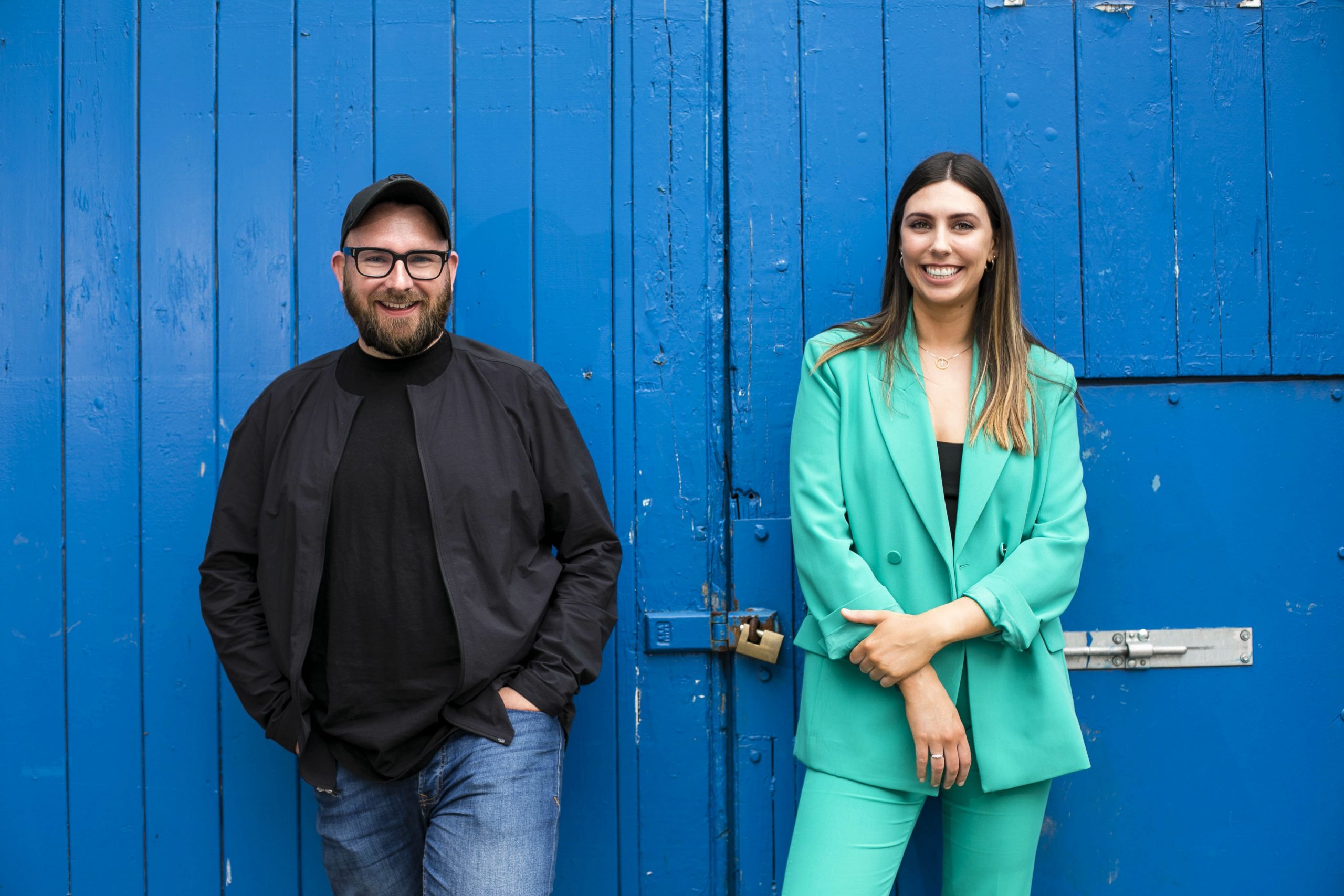This year’s edition of The Entrepreneur Experience takes place this weekend in Ballymaloe Co. Cork.
The event gives 24 emerging entrepreneurs the opportunity to meet with seasoned business leaders and experts for help in honing their products and services and building future roadmaps for funding, expansion and recruitment.
The Entrepreneur Experience is led by CorkBIC with partners Cork City Council, Cork County Council, Grant Thornton, William Fry LLP, Broadlake and The Currency.
Organisers have chosen the 24 participants for this year’s event through a vigorous vetting process and have paired them up with mentors for the weekend of networking and learning.
This year’s participants run a wide gamut, from cutting-edge tech like artificial intelligence to food and hospitality and social enterprises to sports ventures while fifteen of this year’s companies are female-led or co-founded.
Meet the participants in the Entrepreneur Experience 2022.
Addressing an overlooked condition

Amara Therapeutics is a health tech start-up that is developing digital treatments for pelvic health conditions, most commonly known as an overactive bladder. More than 85 million people in Europe and the US suffer from an overactive bladder.
The start-up is headed up by Brendan Staunton who studied neuroscience in UCD and bio innovation in NUIG before getting his MBA from Smurfit Business School.
According to Staunton, pelvic and bladder health conditions are often overlooked. It has developed a digital platform to help people manage their condition with guidance on pelvic muscle training techniques, breathing exercises and tools to track their progress.
It is preparing to launch its first product in the market. While the market for health tech products can be particularly competitive, Staunton said there is an opening for Amara to capture the pelvic health treatment market.
“We have one direct competitor in this space. However, we feel we have a better, more intricate product and in general, we are taking a different view on how to solve the many issues in our particular space,” he said.
The start-up is currently on the fundraising trail for its Series A round to support that launch and to grow its staff to 25 in the coming years.
Staunton acknowledges that the environment for fundraising has become colder compared to just a few months ago.
“Fundraising is always a challenge. Especially given the current economic outlook and the fact we are a predominantly women’s health company can make things more difficult,” Staunton said.
Breaking down barriers for Traveller employment
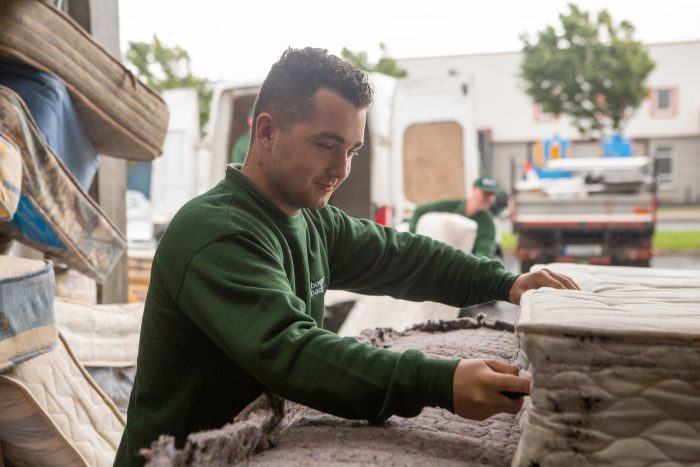
Martin Ward wants to break down the barriers that men and women from the Traveller community often face in finding employment.
Ward leads the Galway Traveller Movement CLG and runs the Galway-based company Bounce Back Recycling.
He said that one of Bounce Back’s aims is to provide employment for Traveller men and women who have experienced discrimination when looking for work.
Galway’s Bounce Back Recycling is a company specialising in the recycling of mattresses and furniture. It was founded in 2017 with the goal of recycling mattresses and furniture in a cleaner and more efficient way. Often these items end up in landfills and incinerators.
Bounce Back carries out collection of mattresses and furniture and delivery to a facility in Galway City where it deconstructs the items by hand to ensure all of their parts can be reused and brought into the circular economy. It services households, businesses and local authorities.
The next steps for Bounce Back are to expand nationwide. Ward said that it plans to service all counties in the Republic by 2025 and plans to move into new counties by the end of this year.
“We aim to become a national brand that the general public in Ireland will think of first when it comes to their bulky good recycling needs,” Ward said.
Accessible activewear with Irish design

After fashion and lifestyle blogger Louise Cooney took home the gong for Influencer of the Year in 2021 at the Digital Awards, she launched CLOO Active, an activewear brand.
CLOO Active is trying to fill a gap in the activewear market with its Irish-designed clothing for women at an accessible price point.
“Our marketing and brand image is strong. We focus on stylish activewear and show people how to style and wear it,” Cooney, who has a social media following of more than 250,000 people, said.
“Another important differentiating factor is that it’s an accessible price point for styles that have not yet been created by an activewear brand in the Irish market.”
Cooney said that this year’s biggest challenge for CLOO Active has been supply chain backlogs, a common headache for many in the apparel sector. Meanwhile expensive freight and excessive customs charges present other hurdles that the company will need to overcome. To date, it has shipped to eight countries.
Currently CLOO Active is a lean team of four but Cooney expects that will grow to between 10 and 15 people over the next five years.
Cooney wears multiple hats alongside CLOO Active. She also co-founded wine spritzer brand 67 Spritz earlier this year and hosts the Open Book podcast.
Bringing the AI edge to customer service
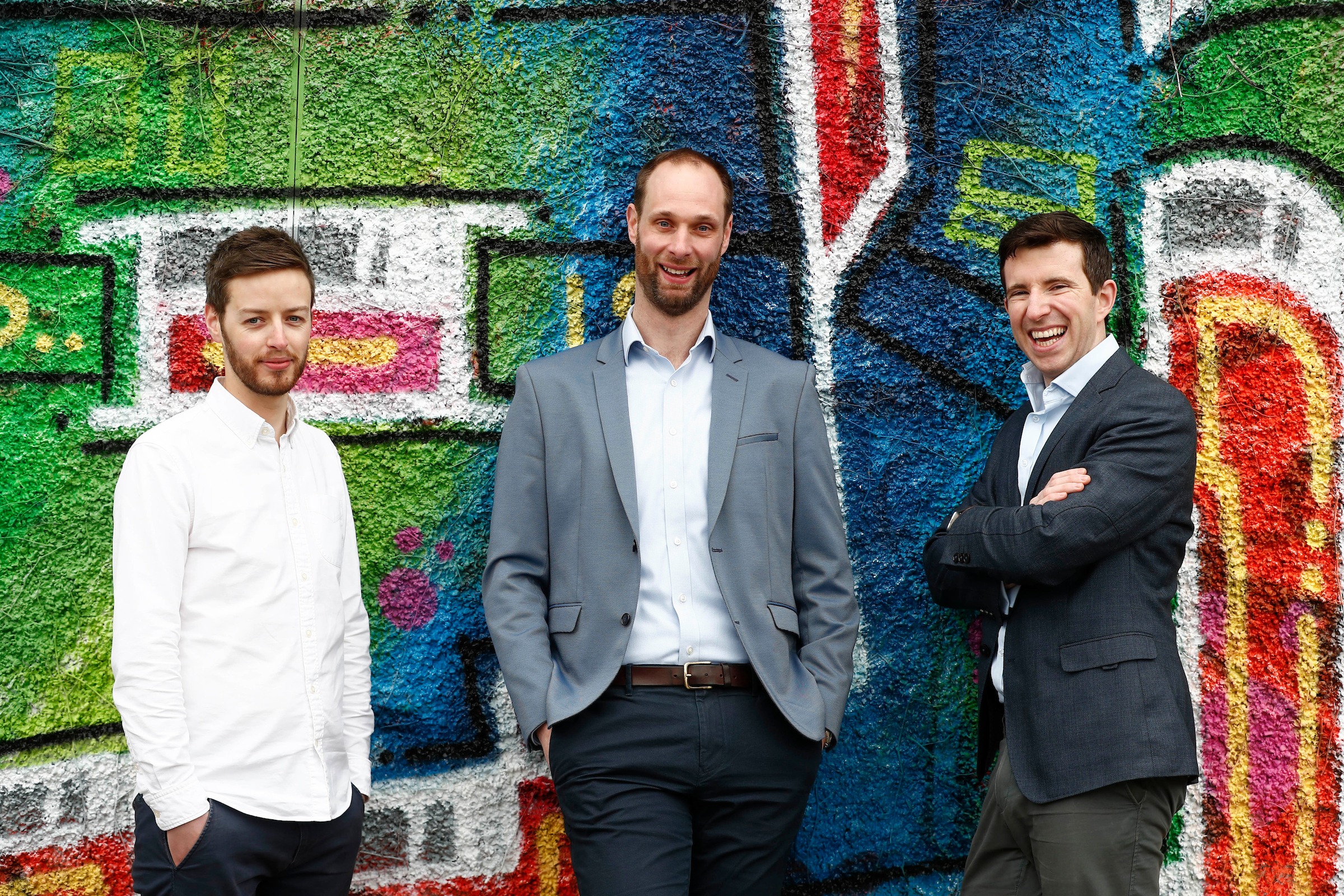
Artificial intelligence holds great promise for streamlining the way businesses operate. Customer service is one such area that EdgeTier is trying to simplify with AI.
The Dublin start-up, led by Shane Lynn, Bart Lehane and Ciarán Tobin, is using AI and machine learning to make sense of companies’ customer communications data. The tools monitor the way companies and their customer-facing units interact and engage with people to identify problems, trends and agent performance in real-time.
Since it was founded in 2017, it has secured large enterprise clients in Europe and the US that are using the tech to cut down on bottlenecks in the customer’s experience with their service. According to the start-up, this is a multi-billion euro opportunity to be seized.
It has not been without its challenges. The Covid-19 pandemic and remote working caused disruptions in businesses’ customer contact centres.
“However, that change also brought about a demand for better analysis tools and opened up opportunities once the immediate crisis passed. For us now, the ability to hire high-quality candidates at a fast enough pace is the largest challenge that we face in the months ahead,” the founders said.
They said that the company tripled its revenues last year.
Through the Entrepreneur Experience, EdgeTier is hoping to lay the groundwork for the next stage of their growth. It aims to scale their team to over 20 – it expects to be over 100 people in three years – and to put a senior management team in place as it prepares to raise its Series A funding round.
Taking control of CSR

Corporate social responsibility (CSR) has never been more prevalent as companies balance their everyday business with contributing to a better world.
Finedeeds, led by Pauline Kwasniak and Rajat Maheshwari and founded just last year, has built a cloud platform for corporates and their employees to create, measure and manage their social giving campaigns.
“The niche proposition is how Finedeeds puts corporations in control of their CSR, making it a brand enhancing investment. Also, with Finedeeds workflow, corporates can involve individual employees more efficiently, incentivising workplace volunteerism and giving,” the founders said.
Kwasniak and Maheshwari have ambitions of being the core platform that major companies use for their CSR. Finedeeds is now on the hunt for funding and to build an advisory board to help guide the next stages of its journey.
In the coming years, it plans to expand into the UK, US and Central and Eastern Europe and envisions creating more than 50 jobs.
Whiskey with its own twist
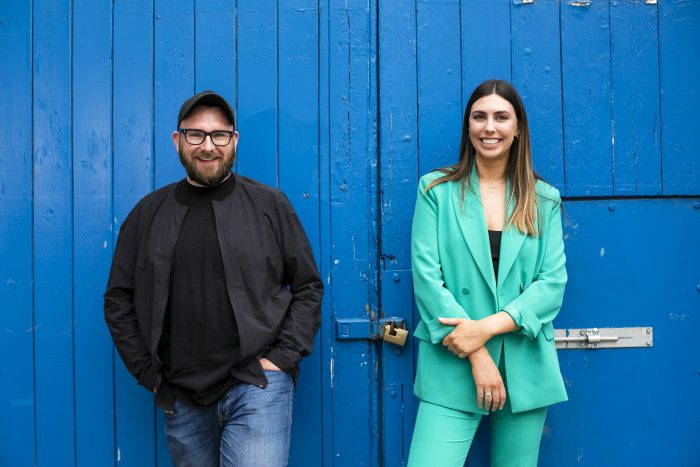
Foxes Bow is one of the newest faces to enter Ireland’s storied whiskey industry. While it has stepped into a traditional category, it has sought less-than-traditional means of getting the venture off the ground.
The founders Alice Carroll and Tony Foote turned to equity crowdfunding and launched a campaign on Crowdcube, the popular platform for many start-ups looking to raise early-stage capital. Foxes Bow managed to raise more than €640,000 – above its target of €500,000.
Foxes Bow has sought to differentiate itself in other ways from the existing whiskey market, all the way down to the neon colour of its bottles, which is a step away from the traditional green and black.
Now the company is focused on international expansion, including devising a route-to-market for the US. The company also has designs on entering the Chinese market.
This will mean further fundraising and expanding its headcount. However, the company is ambitious in its mission to be a recognisable global whiskey brand.
“The ultimate goal is to have the big multinationals come knocking because we’ve created something so unique and special,” Carroll, a former brand developer at Pernod-Ricard, said.
Automating the slog of video summaries
Founded just this year, giyst is developing tools for producing automated video summaries. It is using artificial intelligence, machine learning and natural language processing to help clients make video summaries of their business or pitch quickly and easy.
The company was founded by Avril Power and Colm Murphy, who come from a background in marketing and understand the challenges that companies feel in handling all of their content and creating engaging video content. Giyst is trying to help them cut down existing processes that can be very time-consuming.
“We have developed a summarisation engine that produces fully edited video summaries in an instant, unlike our competitors who use elements of manual editing or APIs to third party tech,” Power explained.
The next step for giyst, she said, is expanding the value of the product and investing in more resources in the whole area of data science, so the start-up has fundraising on its mind.
Giyst, which was spun out from UCD and is now based in Cork, has huge potential in multiple industries, she added, given the “content overload” that many businesses deal with every day.
It has clients in Ireland and the UK so far and has eyes on North America next. It plans to create 20-25 jobs in sales, marketing, technical support, software engineering and data science over the next five years.
Making AI and machine learning more accessible

Graphite Note wants to make machine learning and analytics more accessible to businesses without the need for coding.
It has built a no-code platform to build, visualise, and explain machine learning models that can be applied to various industries and business use cases. It is primarily being used by clients to predict customer activity by increasing sales lead conversion and customer retention and in forecasting future trends.
A key tenet of the platform is that users do not need to write any code themselves.
Graphite Note was founded by Vinnie Lynch, who sold his last start-up Donseed to Causeway Technologies, and Hrvoje Smolic, former CEO of Qualia Data Sciences.
Scaling Graphite Note’s platform to a wider market is now on the agenda for the two.
“Ultimately, we need to be able to commercialise and scale what we have created,” they said.
This means educating potential clients about the power of artificial intelligence and, most importantly, the accessibility of no-code platforms.
“Our competitors that are also targeting SMEs are still way too complicated to use. We think that simplicity and usability, something we are obsessed with, are the key to user acceptance, because we are targeting SMEs and non-technical people within,” according to the founders.
The founders are now looking to raise their first tranches of early-stage funding and envision creating up to 70 jobs in the next five years.
Eagle eye view on the stock market

Hatched Analytics, based in Dublin, is an analytics service that tracks publicly listed companies and provides insights for investors.
It is led by Donal Byrne and Charmaine Kenny, coming from marketing and consulting backgrounds rather than finance. It was founded in 2018 but has been bootstrapped up until this point.
Hatched’s customers are hedge funds that use its data to evaluate stocks and investing decisions. It covers 43 tickers globally currently and plans to more than double that offering next year.
According to Kenny, some of the trends and movements that it analyses are things like the number of customers Spotify has acquired or how many subscriptions Shopify had in the latest quarter – all vital data that informs investor decisions.
Hatched employs 10 employees and is now considering taking on external capital for the first time to fuel its growth and expand the team to between 50 and 100 people.
“Our biggest competitor, YipitData, raised a $475 million Series E in December 2021 led by The Carlyle Group. We are not deterred by this,” Kenny said.
“Access to talent and support networks is an advantage but our clients are in the US, which is a disadvantage. Lockdowns have shown clients that proximity to Wall Street isn’t as important as it used to be.”
Margins AI wants to make e-commerce easier

Margins AI is another start-up delving into the world of artificial intelligence. Founder Anastasia Negru leads the company, which is a spin-out of TU Dublin, and she previously held roles at Microsoft, Tableau and Sage.
Margins is applying its AI tech to e-commerce with a software-as-a-service (SaaS) tool for repricing to help increase sales volume and revenues. It is targeted at SMEs that sell online.
Negru explained that the tools help small businesses manage and optimise their online sales with AI helped by algorithms. This helps predict market trends, consumer behaviour, buying patterns and changes in demand.
“Our solution’s main benefit is that it sets an optimised price to maximise total profit, not just volume, based on automated market intelligence and does this automatically on multiple marketplaces without manual interventions – saving time, resources and enabling the SMEs to be more competitive,” she said.
Negru said that the company, which currently has a team of four, is hoping to refine its pitch for investors with a view to raising some all-important capital.
“With the increasing support available over the past years, especially for women-led start-ups, I think having a women led and established business in Ireland is a huge advantage,” said Negru.
The Shutterstock for the written word

Marker Content is the second start-up of Greta Dunne, who previously led the publishing outfit Youth Nation.
Taking that expertise, Marker Content has created a marketplace for freelance writers and copywriters to upload their content for sale. Its roster of writers and topics covers everything from health to technology and education to fitness.
The model draws some influence from the photo depository Shutterstock but for the written word.
According to Dunne, the start-up is now in the process of raising its seed round to kickstart its growth. Along with raising funds, it is looking to expand its sales operation and increase its presence globally, all from its base in Dublin.
Dunne said that she expects to grow the team at Marker Content to around 16 people within the next five years.
Ultimately she has ambitious goals to make Marker Content “as big as Shutterstock”.
From food waste to energy
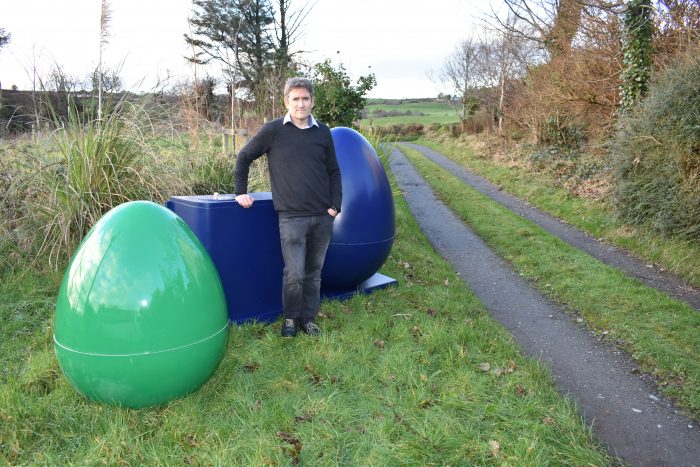
Clean tech start-up MyGug is on a mission to reduce food waste while promoting micro renewable energy generation.
To accomplish this, it has built a micro-scale anaerobic digestion unit to break down food waste for energy.
MyGug is headed up by founders Kieran Coffey, Fiona Kelleher and Elsa O’Riain.
According to the founders, a third of food intended for human consumption is lost or wasted, meaning a billion tons of food is wasted annually. Not only is this a waste of food, it contributes to emissions globally and is a loss to economies.
MyGug is inspired by anaerobic digestion units on farms that converts animal manure or excess crops into gas. The Cork start-up has “miniaturised” the technology for wider use.
“Almost all food waste can be processed in the Gug, resulting in biogas for cooking and also a high-quality fertiliser digestate for use on homegrown vegetables and plants,” the founders said.
MyGug has been manufactured to operate in different climates and weather conditions.
“We believe we are the only micro-scale AD producer that can do this, giving us first mover advantage in the whole northern hemisphere,” the founders added.
“Our second key USP is that we will have a control board in each Gug, which links to a dashboard, and to an app on your smart device in the future, allowing the user to track food waste and gas production volumes. This will also allow us to track the amount of CO2 avoided through the biogas, which in time we will seek to monetise.”
The start-up hopes to raise a round of €1 million and be at 15 employees by 2025.
Sports players’ man behind the scenes
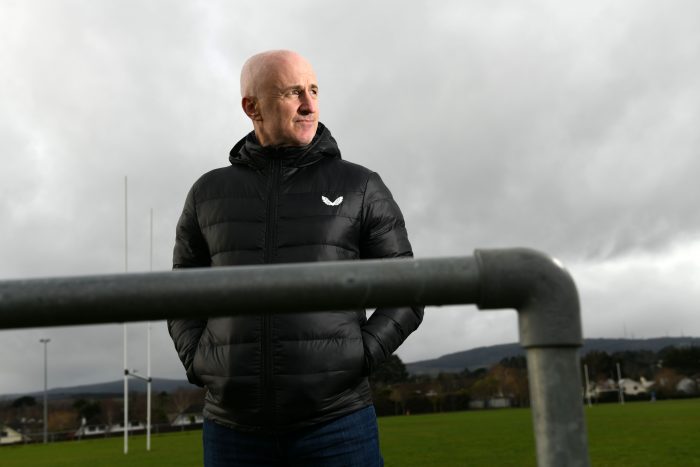
After injury ended his professional rugby career, former Leinster and Ireland player Niall Woods returned to sports in a behind-the-scenes role.
He started Navy Blue Sports, a sports agency, in 2011 initially to represent rugby players, given Woods’ intimate knowledge of the sport and what players needed. Since then, it has expanded into a full-service sports agency with clients globally, from GAA to Olympic athletes.
Further expansion is the mission statement for Woods and Navy Blue as it takes part in the Entrepreneur Experience and it is seeking help with navigating these choppy waters.
“We are looking at acquiring/merging with an agency in the UK to grow out the business and establish a strong foothold in the market in the UK. We are looking for the right advice from someone who has done it before,” Woods said.
Sports representation is fiercely competitive and Woods acknowledged that, aiming to grow Navy Blue in quality rather than sheer scale.
“I am not overly concerned with how big the company can get. My global competitors include a number of disciplines which we currently don’t offer so for me the focus is that we are the best. If we are the best then the growth will continue.”
Nicki Hoyne has a mission for sustainable fashion

Fashion designer Nicki Hoyne started her eponymous company in late 2020, focusing on footwear and handbags designed and made in Ireland and Spain.
Hoyne describes her business as a “slow fashion footwear and handbag brand” that is built around sustainability. Her products are stocked in Arnott’s Dublin and Wolf & Badger in London and New York and are currently shipping to nine countries.
Hoyne previously launched the My Shining Armour online accessories store that shipped to more than 40 countries and worked in sales and marketing for brands like Calvin Klein and Diageo.
Since launching the business in 2020, Hoyne has racked up a series of accolades including the Irish Design Institute Rising Star Award 2021 and a nomination in the start-up category at the Image Business Woman of the Year Awards 2022.
Taking part in the Entrepreneur Experience, she aims to scale the business further into a global niche brand.
“I am an innovator, always looking one step ahead to improve and evolve. I get bored easily, love change and a challenge,” she said.
Strengthening the perks of the job

Albert Williams wants to help companies secure and retain the best talent through benefits.
His start-up Perkforce helps companies in showcasing their corporate benefits and perks, which is still sorely misunderstood.
According to Williams, 80 per cent of employees underestimate their compensation and how it draws talent in. Workers are not interested purely in salaries but are looking for key benefits and perks that will also support their career development and maintain a healthy work-life balance.
The Cork start-up says it is maximising the employee value proposition (EVP) through its services.
“We have researched our competitors and, with customer discovery sessions, have developed innovative solutions that address real issues for organisations that our competitors haven’t,” Williams said.
Williams said that Perkforce needs to raise fresh funding and get more hands on deck to plan its future growth.
“Our revenue would be greater if we had people dedicated to sales and marketing,” he said, adding that he would like to grow the team to 30 people in the next five years.
Crowdfunding a sustainable future
Crowdfunding has emerged in recent years as a viable funding route for start-ups and the avenue is set to get bigger in Europe. New EU legislation has created a firmer framework for start-ups to offer up equity in their companies through crowdfunding platforms.
It is here that Owen O’Driscoll has sniffed an opportunity with PlanDail. It is a crowdfunding platform aimed at social impact and environmental ventures, bringing together founders and retail investors.
O’Driscoll said that he wants the platform to be a guiding light for smaller investors to find deals that could potentially have a real impact on the world.
“Our platform will allow mindful investors to curate their investment preferences and automatically match their preferences with impact investment opportunities,” he said.
The platform is seeking regulatory clearance under the EU’s framework, which will give investors peace of mind that their investments are protected. This is just one step that the company is taking with crowdfunding as it plans to offer additional services in digital assets.
“We are building a digital asset and identity platform for which the first MVP is crowdfunding. We differ in that we are building a much more powerful platform designed to go well beyond crowdfunding and into different types of financial service operators such as MIFID.”
To get to that point it will need capital and PlanDail is seeking out investors to back the business. While it is based in Ireland, it may look further afield to find the funding that it needs, he said.
Gin and absinthe with a Rebel flavour
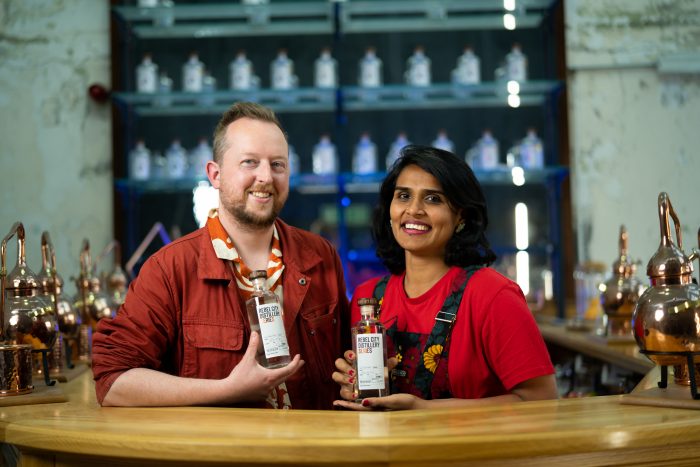
Rebel City Distillery is a craft distillery in Cork that opened its doors in the summer of 2020 in the old Ford factory in the city’s docklands, making its Maharani gin and absinthe.
The distillery is headed up by Robert Barrett, who has led distilleries in Ireland and Canada making gin, vodka and whiskey and Bhagyalekshmi Vasavan Rajeev, who comes from an IT background.
Rebel City’s launch was one that met with tall challenges early on, opening in the midst of the first year of the Covid-19 pandemic and the supply chains clogs that have emerged since then.
Weathering those storms, the distillery successfully launched its first products including its gin and Ireland’s only absinthe.
“Our gin has its unique selling point via its taste profile and provenance, we make Ireland’s only absinthe and our distillery is the only one in Cork City,” Barrett said.
The duo now plan to raise external capital to further expand the business. Exporting its products internationally is a top priority. They have identified potential mass appeal in the US, German and Indian markets.
Making the energy retrofit practical
Making people’s homes more energy efficient is top of many minds. To that end, start-up RetroKit is building software tools to help with home energy upgrades. It works with local authorities, housing associations, project contractors, BER assessors and sustainable energy communities.
The software helps building owners assess their energy upgrades, from usage to energy costs to BER ratings.
The start-up was founded in 2020 by Xavier Dubuisson, Susan O’Flaherty, and Shay Kavanagh, coming from engineering and project management backgrounds.
Its origins are found in a research and development project that was part-funded by the Sustainable Energy Authority of Ireland along with some backing from its Local Enterprise Office.
“We have paying customers in each of our target markets and are working closely with them to continually improve our products. We are preparing to scale the business both in Ireland and abroad,” the founders said.
According to the founders, RetroKit’s software is versatile in that in can be used on a large scale in planning all the way down to the individual house level.
By taking part in the Entrepreneur Experience, RetroKit’s founders are looking for help in guiding their business to wider commercial use and to expand its operations.
“Ireland is leading the way in deep retrofit in Europe with an ambitious policy framework being watched closely by other countries.”
Bridging the gap for children’s needs
Karen Leigh leads Sensational Kids, a social enterprise. It provides subsidised frontline therapy services for children, such as occupational therapy, speech and language therapy, play therapy and psychology. It has four child development centres in Cork, Kildare, Mayo and Monaghan.
Leigh describes the enterprise as a bridge for the gap between public and private therapy services for children of all abilities.
It is an important gap to bridge, she said, when you consider that there are around 70,000 children on public waiting lists for speech and language therapy and occupational therapy.
The business has been in operation since 2007 and it is participating in the Entrepreneur Experience to refocus on growth and honing management skills.
“As the founder, you have tons of passion and vision, but I feel there is a challenge in scaling when you lose some of this through handing over parts to employing staff and spend your time managing people,” Leigh said.
While the business has four child development centres in operations, Leigh has aspirations to build a fifth “flagship” site that can support 30,000 children over the next 10 years.
High-tech training on the job
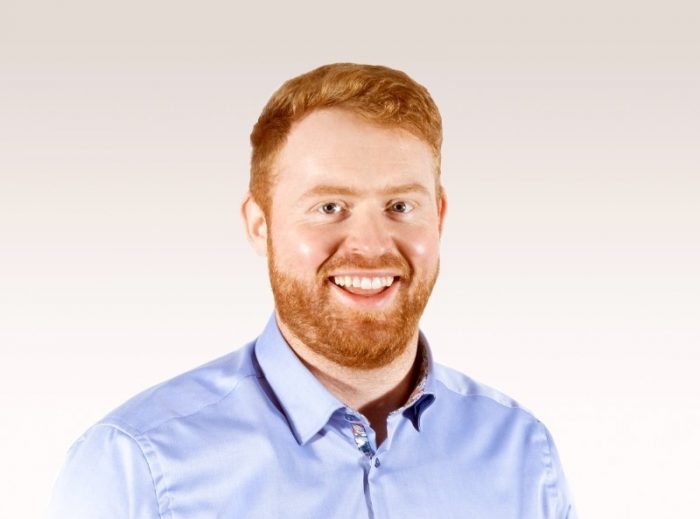
Mark Horgan started Cork’s SkillsBase, an ed-tech start-up, last year after more than a decade developing software for enterprise clients. He is joined by Chris Horgan in leading the company.
With SkillsBase, the founders are providing educational solutions to companies working with complex technologies like artificial intelligence and augmented reality. This covers a wide berth of sectors where companies are using or experimenting with technologies, from utilities to sports clubs.
It has developed a mobile-first training and engagement app to help companies train and connect remotely. To date, it has already signed up large clients like BT, Sky and Munster Rugby.
Selling software to large enterprise clients presents huge opportunities, Horgan said, but it requires the team to scale that opportunity and refine the business model
“[It is a challenge] having our customers value the solutions that we create for them, new technology can require early adopters, and this takes time for the technology to be proven and a business case generated,” Horgan said.
However, deploying the technology can be done relatively quickly to get the ball rolling.
“Our reaction speed allows us to launch fit-for-purpose solutions. Our AI technology can be deployed for new products in days.”
Horgan expects SkillsBase will employ more than 25 people in the next five years.
StoreHero wants to help sellers “drowning in data”
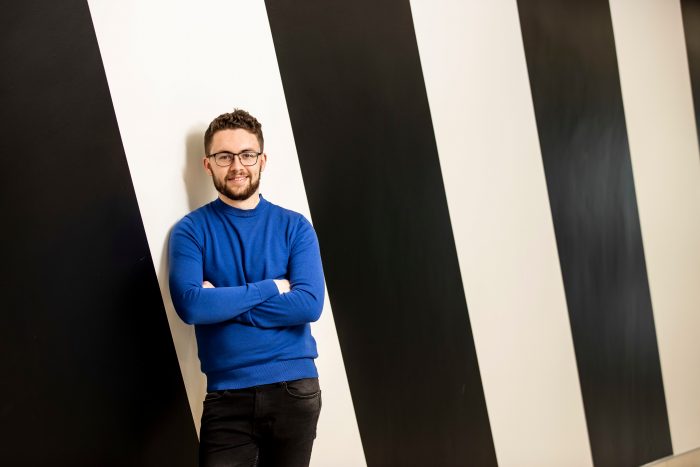
E-commerce is big business but it can be overwhelming for smaller companies selling online. StoreHero, which was founded this year, is developing e-commerce analytics to help these businesses to identify how effective their marketing is.
StoreHero is led by Karl O’Brien, who previously founded the web and digital marketing agency Effector.
As O’Brien puts it, online store owners are “drowning in data”. StoreHero centralises an e-commerce business’s sales and metrics into one dashboard for easier management, especially when it comes to ad and marketing spend.
“Many stores are busy making Google and Facebook richer, running unprofitable ads instead of building a real, sustainable business,” O’Brien said.
StoreHero has yet to raise any funding but that is soon to change as it eyes up a seed funding round.
“Having bootstrapped the business to date, this requires a singular focus in order to use resources effectively and ensure any product development time is serving the most important needs of our users. I’ll be eager to keep this focus even with outside funding so this is an area we’ll be exploring in the coming months.”
The Shona Project is empowering young women and girls
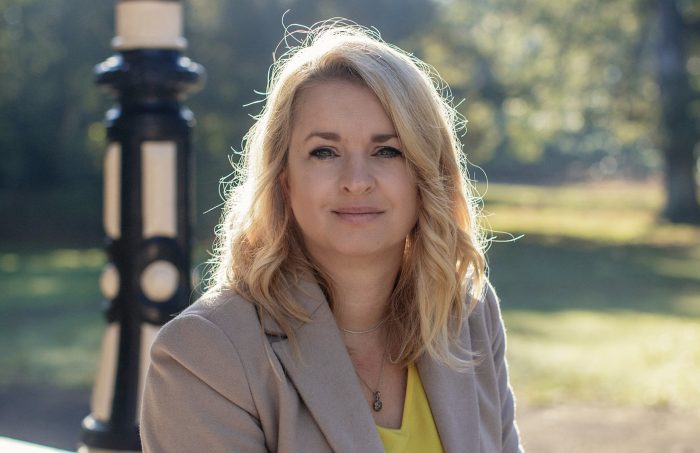
The Shona Project is a social enterprise founded in 2016 by Waterford-based Tammy Darcy to empower young women and girls in Ireland.
It provides information, advice and a safe place for young women and girls, through directly working with schools where it has reached more than 25,000 girls, and the Shine Festival with speakers including Vicky Phelan, Laura Whitmore, and Angela Scanlon.
Darcy was awarded the Red Cross Humanitarian of The Year award in 2021 and sits on the government group for policy support of the social enterprise sector.
She said that the organisation is now seeking funding to continue its mission and expand its reach.
“We have great products but don’t have the resources to scale at present,” she said.
“There is no organisation that does what we do in Ireland to the level we do it. We are successful because we speak with young people in their own language, and talk with them, not at them,” she said.
Within the next five years, Darcy wants to expand the influence of the organisation nationally so more young people are aware of its services. Part of this expansion will include a establishing a service for boys. Darcy aims to add 20 jobs to the organisation in that time period.
From ash to bamboo
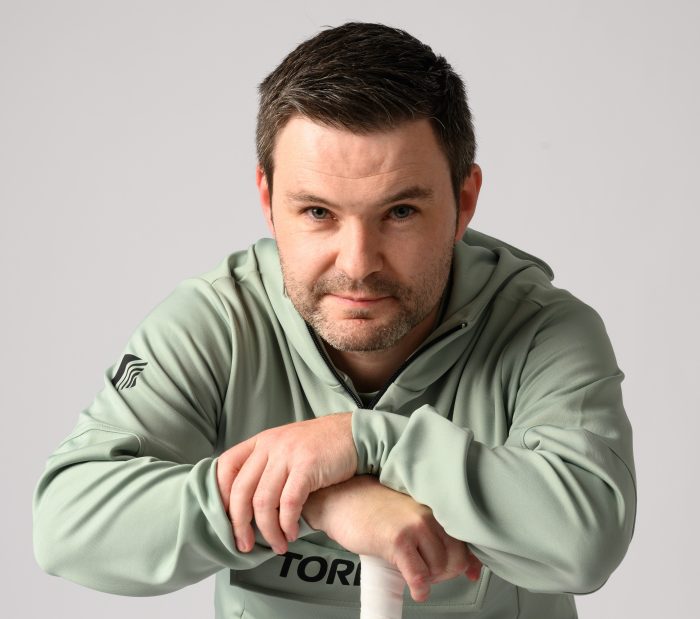
Torpey is the most seasoned company taking part in this year’s Entrepreneur Experience. Established in 1981, the Clare company manufactures ash hurleys. It is led by Seán Torpey, who took over the reins of the business in 2020. His own experience includes a role as product manager at Puma, working on its Formula 1 apparel, and at Adidas.
Seán joined the family business full-time in 2012 and in recent years the company has delved into further product development by exploring new materials for hurleys, namely with its Bambú brand of hurley, made from bamboo rather than the traditional ash.
The diversifying of the company’s product range includes other types of sports bats and apparel – all part of its goal to reach more markets.
It is a uniquely Irish business but one with international potential.
“We are aiming to expand our reach to new markets, we need to also stay loyal to our current market,” Torpey said.
“Our core business is based on an Irish sport of hurling, this gives us credibility before entering any new markets. The fact we have this story and business outcome to stand by plays a huge part in our potential development.”
Over the next five years, the company hopes to add between 15 to 25 new jobs.
Velo Coffee Roasters has eyes on internationalising
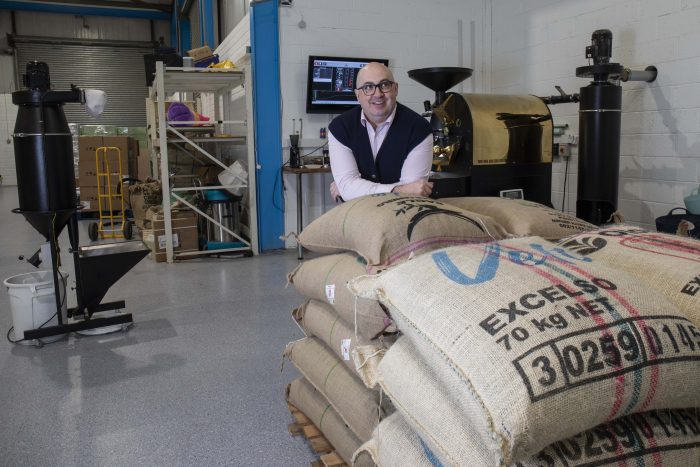
Velo Coffee Roasters is a small-batch roastery based in Cork that was founded in 2018 by Rob Horgan and Suzanne Casey.
Horgan comes from a background in the food industry with roles at the Booker Group and Kepak and currently is committee chair in the Cork Chamber of Commerce while Casey moved to Cork from the US where she spent a decade in food production and management as well as earning a Certification in Winemaking from UC Davis, California.
Velo sells it coffee in physical retail and online in Ireland and now the UK. The company is looking to expand its retail presence in the UK and looking for investors to back that vision. The new funds will be used to bolster its international ambitions and build out a senior leadership team.
“While there has been a lot of work so far on growing awareness in the UK through our direct-to-consumer website we are still working towards the challenge of getting a listing agreed in the UK by the end of 2022,” Casey said.
The duo expects to create nine jobs in the coming years and longer-term hopes to enter the US market.
